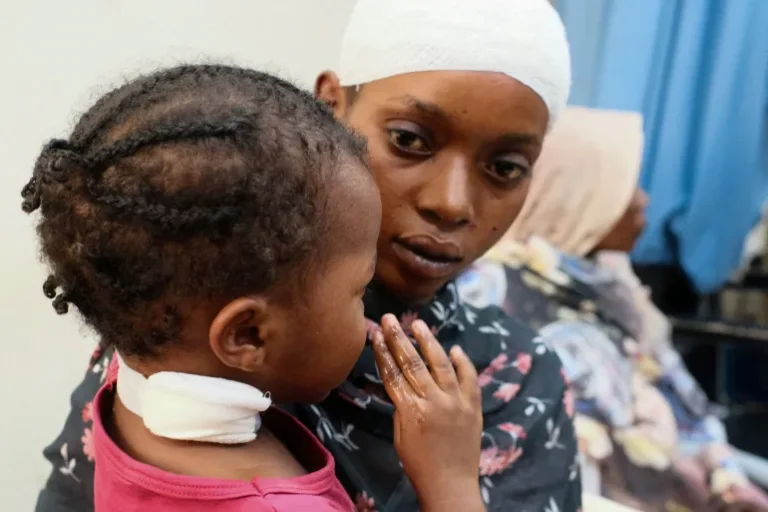Amid Sudan’s protracted civil war, a deadly drone strike on a displacement camp in River Nile state has claimed 11 lives and left 23 wounded, underscoring the escalating toll on vulnerable civilian populations. The attack, believed to be carried out by the paramilitary Rapid Support Forces (RSF), targeted a makeshift settlement near the Atbara power station outside the town of al-Damer — a site where displaced families were taking shelter from prior attacks.
Witness accounts paint a horrifying picture. Haleema, one of the survivors, lost multiple family members in the assault, including children as young as two and ten years old. “My son, my cousin, my daughter’s husband and two children, my cousin’s children are dead,” she told Al Jazeera, her voice heavy with grief. Another survivor, Mawaheb Mohamed, recounted how four drone strikes rained terror on the camp within a short span, leaving behind dismembered bodies and shattered lives.
RSF Denies Drone Attacks on Civilians and Infrastructure
The RSF, led by Mohamed Hamdan Dagalo (also known as Hemedti), has repeatedly been accused of targeting civilian infrastructure in army-controlled areas. Although the RSF denies conducting drone attacks, recent months have seen a systematic pattern of assaults on critical facilities like power stations. Friday’s strike marked the fourth time the Atbara station has been knocked offline since the conflict began in April 2023, plunging even more Sudanese into darkness and deepening the country’s power grid collapse.
A Nation Displaced and Forgotten
The humanitarian toll of the war is staggering. More than 12.4 million people have been displaced, according to United Nations estimates, including 3.3 million who have fled to neighboring countries. Families that once lived in Khartoum now find themselves forced into precarious existence in abandoned buildings and tents — only to be subjected to further violence even in supposed places of refuge.
A War Without an End in Sight
The civil war erupted when tensions between Sudan’s military, led by Abdel Fattah al-Burhan, and the RSF escalated into open conflict. While al-Burhan’s forces have recently celebrated territorial gains, especially in Khartoum, ground fighting remains intense in Darfur and central regions. The RSF’s brutal tactics, including alleged ethnic cleansing and indiscriminate attacks, have drawn international condemnation, but meaningful intervention remains absent.
Friday’s drone strike is not just another statistic; it is a reminder that Sudan’s civilian population — families, children, the elderly — bear the heaviest burden of a war they did not choose. Displacement camps, meant to offer safety, have become fresh targets in a battle with no clear end in sight.
As survivors board buses headed to yet another unknown destination, the international community must ask itself: How long can we look away while an entire nation burns?


